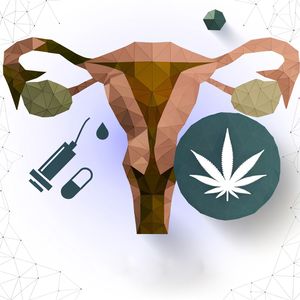Medical marijuana is a subject that ignites strong emotions among doctors, scientists, researchers, policymakers and the public. Many think that promoting medical marijuana is merely a ruse to support the legalisation of marijuana. Nevertheless, there is no doubt that medical science is yet to realise the full potential of the therapeutic properties of marijuana, which is often called the ‘wonder plant’.
Recently, a group of researchers from Australia and New Zealand published a study in the Journal of Clinical Medicine, which says that marijuana shows promise in pain management for those suffering from endometriosis. Approximately 10 per cent (190 million) of women and girls in their reproductive age worldwide are affected by endometriosis. This chronic condition is linked to intense, life-disrupting pain during menstruation, sexual intercourse, bowel movements and urination. Other symptoms include chronic pelvic pain, abdominal bloating, nausea, fatigue, and sometimes depression, anxiety and infertility. Currently, there is no known cure for endometriosis, and treatment primarily focuses on managing symptoms. Unfortunately, access to early diagnosis and effective treatment is restricted in various settings, particularly in low- and middle-income groups.
As part of their study, researchers explored existing literature (more than 140
scientific papers) on the use of cannabis as a self-management approach for treating pain associated with endometriosis. They also explored the interactions between gut microbes and the endocannabinoid system (ECS), which regulates and controls many critical bodily functions such as learning and memory, emotional processing, sleep, temperature control, pain control, inflammatory and immune responses, and eating.
The ECS is formed by a complex network of chemical signals and cellular receptors distributed extensively throughout our body. To activate these receptors, our bodies naturally produce molecules called endocannabinoids, which bear a structural resemblance to molecules found in the cannabis plant. The new study reveals that endocannabinoids derived from cannabis offer a protective influence on the gut, reducing inflammation and enhancing permeability. This alleviates bloating, a prevalent symptom of endometriosis. Additionally, cannabinoids inherently inhibit pain receptors, acting as a natural pain-relieving agent. The study concluded that both the ECS and the gut microbiota have the potential to become primary targets for therapeutic interventions for endometriosis. However, clinical studies are required to determine the effectiveness. Currently, there is only one trial on medicinal cannabis for endometriosis in which the different psychoactive cannabinoids extracted from the cannabis are compared for their effectiveness.


